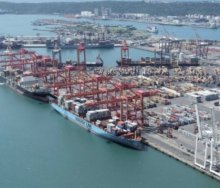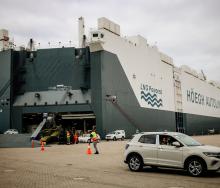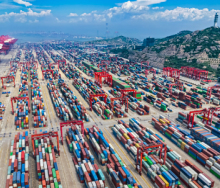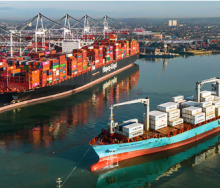Nearly one in three African countries is landlocked, accounting for 26% of the continent’s landmass, and 25% of the population (more than 200-million people), pointed out Mike Poverello’s latest blog.
This, it added, indicated that current population growth trends, including the development of population megacities distant from coastal locations, will become powerful drivers of inland markets.
At the 3rd annual Africa Ports, Logistics & Supply Chain Conference, APM Terminals’ director of business development and infrastructure investments for the Africa-Middle East Region, Reik Mueller, stated that “Ports will compete to become preferred gateways to move goods efficiently to inland cities and landlocked countries” He added that “The future prosperity of these nations depends on access to the global economy and new markets; high-growth markets need inland infrastructure and logistics capabilities along development corridors. The ports that can provide the best and most efficient connectivity to those Inland markets will be the winners.”
Mueller cited the recent success in reducing port congestion through Inland Container Depots (ICDs). These are now in operation outside of the APM Terminals-operated port of Luanda, Angola; the Meridian Port Services joint venture in Tema, Ghana; and the ICD which was opened four kilometres from APM Terminals Apapa - the busiest container terminal in Nigeria and all of West Africa.
He made the case for integrated transportation solutions. “Importers are not going to wait for improved infrastructure; the cargo will simply move to other ports” he added.
Mueller described a new model for transportation planning and development in West Africa in which port and terminal operations shift focus from “container lifts” toward “integrated container transport solutions”.
“Dry ports and inland markets are the untapped, overlooked opportunity markets of the future in Africa,” he added.
Poverello listed his sources as: DredgingToday.com, PortStrategy.com and Greenport.com












